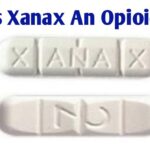How Long Does It Take To Withdraw From Drugs?

Drug withdrawal, also known as substance withdrawal syndrome, is the group of symptoms that occur upon the abrupt discontinuation or decrease in the intake of medicinal or recreational drugs. In order for the symptoms of withdrawal to occur, one must have first developed a form of drug dependence. This may occur as physical dependence, psychological dependence or both. Drug dependence develops from consuming one or more substances over a period of time.
Dependence arises in a dose-dependent manner and produces withdrawal symptoms that vary with the type of drug that is consumed. For example, prolonged use of an antidepressant medication is likely to cause a much different reaction when discontinued compared to discontinuation of an opioid, such as heroin.
What Happens to Your Body During Drug Withdrawal?
As you become physically dependent on drugs, your body gradually adapts to the presence of drugs in your system. But when you abruptly stop using drugs after long-term use, your body can become violently ill and produce a range of withdrawal symptoms as it tries to adapt to the sudden absence of drugs.
For instance, opioids like heroin and painkillers act on a brain neurotransmitter called dopamine that creates feelings of extreme happiness and euphoria. After long-term use of opioids, the brain stops producing dopamine on its own and comes to rely on opioids for these effects. When people abruptly stop using opioids after becoming addicted, their brains produce lower dopamine levels — leading to symptoms like anxiety and depression.
What are the signs and symptoms of drug withdrawal?
The nature and severity of the drug withdrawal symptoms that you experience is influenced by a number of individual factors, including how long you have been struggling with a drug addiction, the type of drug that you have become addicted to, how much of the drug you have been consuming, the method by which you have been taking the drug, and your general mental and physical health.
Drug withdrawal symptoms can be categorized into both physical and psychological symptoms.
Physical symptoms of drug withdrawal include:
• Nausea and vomiting
• Diarrhoea
• Muscle and bone pain
• High temperature and/or chills
• Fatigue and exhaustion
• Restlessness
• Vivid, unpleasant dreams
• Flu-like symptoms
• Headaches
• Heart palpitations
• Excessive sweating
• Shaking and shivering
Psychological symptoms of drug withdrawal include:
• Depression
• Anxiety
• Paranoia
• Insomnia
• Panic attacks
• Confusion
• Irritability and agitation
• Difficulty focusing or concentrating
• Intense cravings for the drug
• Short-term memory loss
The most severe drug addiction withdrawal symptoms, known as ‘delirium tremens’ (DTs), include:
• Rapid heart rate
• Elevated body temperature
• Extreme confusion
• Uncontrollable shaking/shivering
• Visual and/or auditory hallucinations
• Seizures
How Long Does Withdrawal Last?
How long does withdrawal lasts is influenced by which particular substance someone used as well as the magnitude of their dependence on the substance. It may take days, weeks, and in some cases months to reach complete resolution of all withdrawal symptoms, depending on various factors and individual differences.
A general overview of certain drugs and their characteristic withdrawal timeline is as follows:
Short-Acting Opioids (such as heroin and certain prescription painkillers): Short-acting opioid withdrawal symptoms generally begin 8-24 hours after last use and last an average of 4-10 days.
Longer-acting opioids (such as methadone): For methadone and other longer-acting opioids, it may take 2-4 days for withdrawal symptoms to emerge. Withdrawal will likely fade within a period of 10 days.
Benzodiazepines (such as Xanax, Valium, Klonopin, Clonazepam and Ativan): Withdrawal from benzos begins within 1-4 days, peaking in severity in the first 2 weeks. Protracted withdrawal can last months or years without treatment in some cases.
Alcohol: The first signs of alcohol withdrawal may appear within several hours after the last drink and peak over the course of 24-48 hours. A risk of seizures may remain high for anywhere from 12 hours to 48 hours after, with certain other risks, such as delirium tremens (DTs), remaining a concern for as long as 3 days after the last drink.





